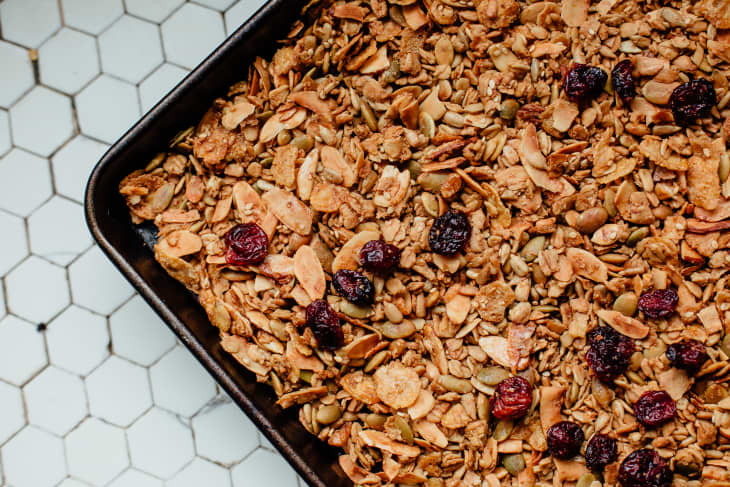Our Readers’ Responses to This FDA Ruling Will Make You LOL
For literally thousands of years, psychologists, poets, social scientists, songwriters, physiologists, novelists, philosophers, nuns ,and countless individuals in countless disciplines have attempted to answer the question “What is love?” The U.S. Food and Drug Administration recently submitted its own assessment, issuing its own ruling about what love is not: an ingredient.
In a letter to John Gates, the CEO and co-owner of the Concord, Massachussetts-based Nashoba Brooks Bakery (which has included “love” on its ingredient list for nearly 20 years), FDA Program Division Director Ronald Pace said this was a case of mislabeled food. “Love is not a common or usual name of an ingredient, and is considered to be intervening material because it is not part of the common or usual name of the ingredient,” Pace writes, describing love in the least Hallmark way ever.
“I really like that we list ‘love’ in the granola,” Gates tells Bloomberg. “People ask us what makes it so good. It’s kind of nice that this artisan bakery can say there’s love in it and it puts a smile on people’s face.”
Our readers, it turns out, are significantly less sentimental. Responses really ran the gamut: Some were mildly opposed, some significantly more disturbed (to the point that they would boycott the product!), and still others hypothesized that not all of the employees made the granola with love — and argued that other emotions (like boredom!) should also be listed on the label if love was to be allowed.
We did get a laugh out of this, as well as the comment about “blessed apples” and “cute blueberries” — point taken!
It is also true, as nofunlatte noted, that there were other violations, including “insanitary conditions.” (Pace presumably harrumphed when he saw an employee with “a nose ring and earrings” kneading dough.)
We also sympathize with Gates on this one. “It does feel silly,” he tells the Boston Globe. “I get that asking a food manufacturer to take an ingredient off of a label, if the ingredient is not present, makes sense. But in this case, there feels like there needed to be someone who was at the FDA who could look at that and say, ‘Is this really something we want to put in a letter to a business?'”
